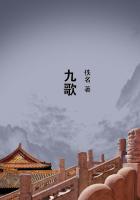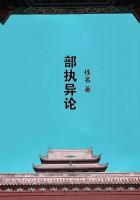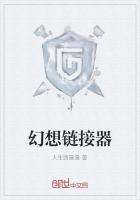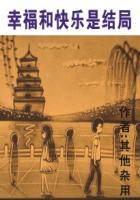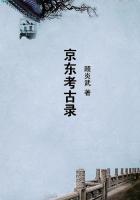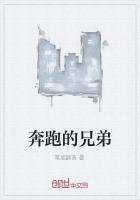AFTER THE BATTLE--TELEGRAPH AND SIGNAL SERVICE--MOVEMENT BY THE LEFT FLANK.
More desperate fighting has not been witnessed on this continent than that of the 5th and 6th of May. Our victory consisted in having successfully crossed a formidable stream, almost in the face of an enemy, and in getting the army together as a unit.
We gained an advantage on the morning of the 6th, which, if it had been followed up, must have proven very decisive. In the evening the enemy gained an advantage; but was speedily repulsed. As we stood at the close, the two armies were relatively in about the same condition to meet each other as when the river divided them. But the fact of having safely crossed was a victory.
Our losses in the Wilderness were very severe. Those of the Confederates must have been even more so; but I have no means of speaking with accuracy upon this point. The Germania Ford bridge was transferred to Ely's Ford to facilitate the transportation of the wounded to Washington.
It may be as well here as elsewhere to state two things connected with all movements of the Army of the Potomac: first, in every change of position or halt for the night, whether confronting the enemy or not, the moment arms were stacked the men intrenched themselves. For this purpose they would build up piles of logs or rails if they could be found in their front, and dig a ditch, throwing the dirt forward on the timber. Thus the digging they did counted in making a depression to stand in, and increased the elevation in front of them. It was wonderful how quickly they could in this way construct defences of considerable strength. When a halt was made with the view of assaulting the enemy, or in his presence, these would be strengthened or their positions changed under the direction of engineer officers. The second was, the use made of the telegraph and signal corps. Nothing could be more complete than the organization and discipline of this body of brave and intelligent men. Insulated wires--insulated so that they would transmit messages in a storm, on the ground or under water--were wound upon reels, making about two hundred pounds weight of wire to each reel. Two men and one mule were detailed to each reel. The pack-saddle on which this was carried was provided with a rack like a sawbuck placed crosswise of the saddle, and raised above it so that the reel, with its wire, would revolve freely. There was a wagon, supplied with a telegraph operator, battery and telegraph instruments for each division, each corps, each army, and one for my headquarters. There were wagons also loaded with light poles, about the size and length of a wall tent pole, supplied with an iron spike in one end, used to hold the wires up when laid, so that wagons and artillery would not run over them. The mules thus loaded were assigned to brigades, and always kept with the command they were assigned to. The operators were also assigned to particular headquarters, and never changed except by special orders.
The moment the troops were put in position to go into camp all the men connected with this branch of service would proceed to put up their wires. A mule loaded with a coil of wire would be led to the rear of the nearest flank of the brigade he belonged to, and would be led in a line parallel thereto, while one man would hold an end of the wire and uncoil it as the mule was led off. When he had walked the length of the wire the whole of it would be on the ground. This would be done in rear of every brigade at the same time. The ends of all the wires would then be joined, making a continuous wire in the rear of the whole army. The men, attached to brigades or divisions, would all commence at once raising the wires with their telegraph poles.
This was done by making a loop in the wire and putting it over the spike and raising the pole to a perpendicular position. At intervals the wire would be attached to trees, or some other permanent object, so that one pole was sufficient at a place. In the absence of such a support two poles would have to be used, at intervals, placed at an angle so as to hold the wire firm in its place. While this was being done the telegraph wagons would take their positions near where the headquarters they belonged to were to be established, and would connect with the wire.
Thus, in a few minutes longer time than it took a mule to walk the length of its coil, telegraphic communication would be effected between all the headquarters of the army. No orders ever had to be given to establish the telegraph.
The signal service was used on the march. The men composing this corps were assigned to specified commands. When movements were made, they would go in advance, or on the flanks, and seize upon high points of ground giving a commanding view of the country, if cleared, or would climb tall trees on the highest points if not cleared, and would denote, by signals, the positions of different parts of our own army, and often the movements of the enemy. They would also take off the signals of the enemy and transmit them. It would sometimes take too long a time to make translations of intercepted dispatches for us to receive any benefit from them. But sometimes they gave useful information.
On the afternoon of the 7th I received news from Washington announcing that Sherman had probably attacked Johnston that day, and that Butler had reached City Point safely and taken it by surprise on the 5th. I had given orders for a movement by the left flank, fearing that Lee might move rapidly to Richmond to crush Butler before I could get there.
My order for this movement was as follows:
HEADQUARTERS ARMIES OF THE U. S., May 7, 1864, 6.30 A.M.
MAJOR-GENERAL MEADE, Commanding A. P.
Make all preparations during the day for a night march to take position at Spottsylvania C. H. with one army corps, at Todd's Tavern with one, and another near the intersection of the Piney Branch and Spottsylvania road with the road from Alsop's to Old Court House. If this move is made the trains should be thrown forward early in the morning to the Ny River.

